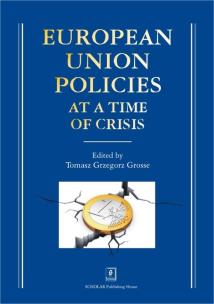- Regulamin
- Koszty dostawy
- Kontakt
- Dziś w ofercie 236 280 produktów
KSIĄŻKI
- Albumy
- Beletrystyka
- Biografie
- Dla dzieci i młodzieży
- Edukacja
- Ekonomia i biznes
- Ezoteryka
- Historia
- Informatyka
- Kalendarze
- Komiksy
- Kryminał i sensacja
- Kultura i sztuka
- Literatura faktu
- Literatura kobieca
- Literatura piękna
- Medycyna
- Nauka języków obcych
- Nauki humanistyczne
- Nauki przyrodnicze
- Nauki ścisłe
- Podręczniki
- Poradniki
- Prawo i administracja
- Przewodniki i podróże
- Psychologia
- Religia
- Sport
- Technika
- Zdrowie i uroda
ZABAWKI
- Artykuły dla niemowląt
- Bączki
- Bujaki i skoczki
- Ciągnij / pchaj
- Dla niemowlaka
- Grzechotki i gryzaki
- Karuzele i pozytywki
- Maty i centra zabaw
- Projektory i lampki
- Sortery i piramidki
- Zabawki
- Edukacyjne i kreatywne
- Figurki
- Klocki
- Lalki
- Pojazdy
- Pluszaki i maskotki
- Sport i rekreacja
- Zabawa w dom
- Zabawki drewniane
- Puzzle
- Do 200 elementów
- 201-500 elementów
- 501-1000 elementów
- Ponad 1000 elementów
- Puzzle 3D
ART. PAP
- Artykuły biurowe
- Artykuły piśmiennicze
- Bloczki i kartki samoprzylepne
- Dziurkacze
- Kalkulatory
- Nożyczki i nożyki
- Skoroszyty
- Teczki
- Wizytowniki
- Zszywacze
- Artykuły szkolne
- Akcesoria szkolne
- Modelowanie
- Notatniki i zeszyty
- Piórniki
- Plecaki i torby
- Pojemniki na śniadanie
- Pomoce naukowe
- Przybory matematyczne
- Przybory rysunkowe
- Upominki i gadżety
- Akcesoria do książek
- Artykuły balowe
- Breloki i zawieszki
- Drobiazgi, różności
- Kubki
- Oferta Świąteczna
- Papeteria, kartki i naklejki
- Skarpetki Many Mornings
- Upominki
GRY
MULTIMEDIA
- Audiobooki
- Beletrystyka
- Biografie i wspomnienia
- Dla dzieci i młodzieży
- Fantastyka
- Filozofia i religia
- Historia
- Literatura faktu i reportaż
- Poradniki
- Sensacja i kryminał
- Filmy DVD/BD
- Animowane
- Biograficzne
- Fantasy
- Horrory
- Komedie
- Romanse
- Science Fiction
- Sensacyjne / kino akcji
- Thrillery
- Muzyka CD
- Alternatywna
- Blues
- Dla dzieci
- Jazz
- Klasyczna
- Piosenka aktorska i poetycka
- Pop
- Rock
- Świąteczna i kolędy
- Akcesoria GSM
- Głośniki
- Kable i adaptery
- Klawiatury
- Myszy
- Słuchawki
PROMOCJE
ZDROWIE
LEGO

European Union Policies at a Time of Crisis
Wydawca:
Scholar
ISBN:
978-83-7383-826-0
EAN:
9788373838260
oprawa:
Twarda
format:
240x173x23mm
język:
angielski
liczba stron:
352
rok wydania:
2017
(0) Sprawdź recenzje
Opis produktu
Zasady bezpieczeństwa
In recent years, and more specifically, since the outbreak of the Eurozone crisis in 2010, the model of integration has changed. The rising political power of the strongest Member States and the political segmentation of the European Union into separate circles of integration have become the new reality. These processes have been accompanied by a range of related changes, such as the growing politicisation of the European Commission, increasing institutionalisation of the euro area and petrification of the geographical and political division into central and peripheral states in the EU. At this point, it is difficult to predict whether these changes will prove temporary or permanent, and what will be their systemic consequences (or, in other words, how will they impact Europe’s political system). It is similarly difficult to judge how the changes will influence specific EU policies. An attempt to answer these difficult but compelling questions is the objective of our book.
Tomasz Grzegorz Grosse,
Professor of Political Science and Head of Department of European Union Policies at the University of Warsaw; author of In Search of Geo-economics in Europe and coeditor of The Aspects of a Crisis
The authors of this volume offer a comprehensive analysis of conditions and results of EU policies in the context of European integration. The ambitious scope of the project required the knowledge of economics, history, political science, international relations, law and even sociology. The authors fulfill their promise to the readers: the volume contains a comprehensive and detailed elucidation of the influence of the crisis on the integration practice, and on the contemporary conditions of EU integration, including both its structure and functioning.
Zbigniew Czachór,
author of The Crisis and Disrupted Dynamics of the European Union
The volume edited by Tomasz G. Grosse promises to be a very valuable contribution to Polish European studies. It belongs to the broader field of critical reflections on European integration and as such, it opens new possibilities of constructive debate about the present and the future of the European Union.
Janusz Ruszkowski,
coauthor of Euro: Common Currency of the United Europe
CENA:
32,70
zł
Cena detaliczna:
46,20 zł
29%
rabatu
Najniższa cena z ostatnich 30 dni: 32,80 zł
Produkt niedostępny
Uwaga!!!
Ten produkt jest zapowiedzią. Realizacja Twojego zamówienia ulegnie przez to wydłużeniu do czasu premiery tej pozycji. Czy chcesz dodać ten produkt do koszyka?


Wybierz wariant produktu
